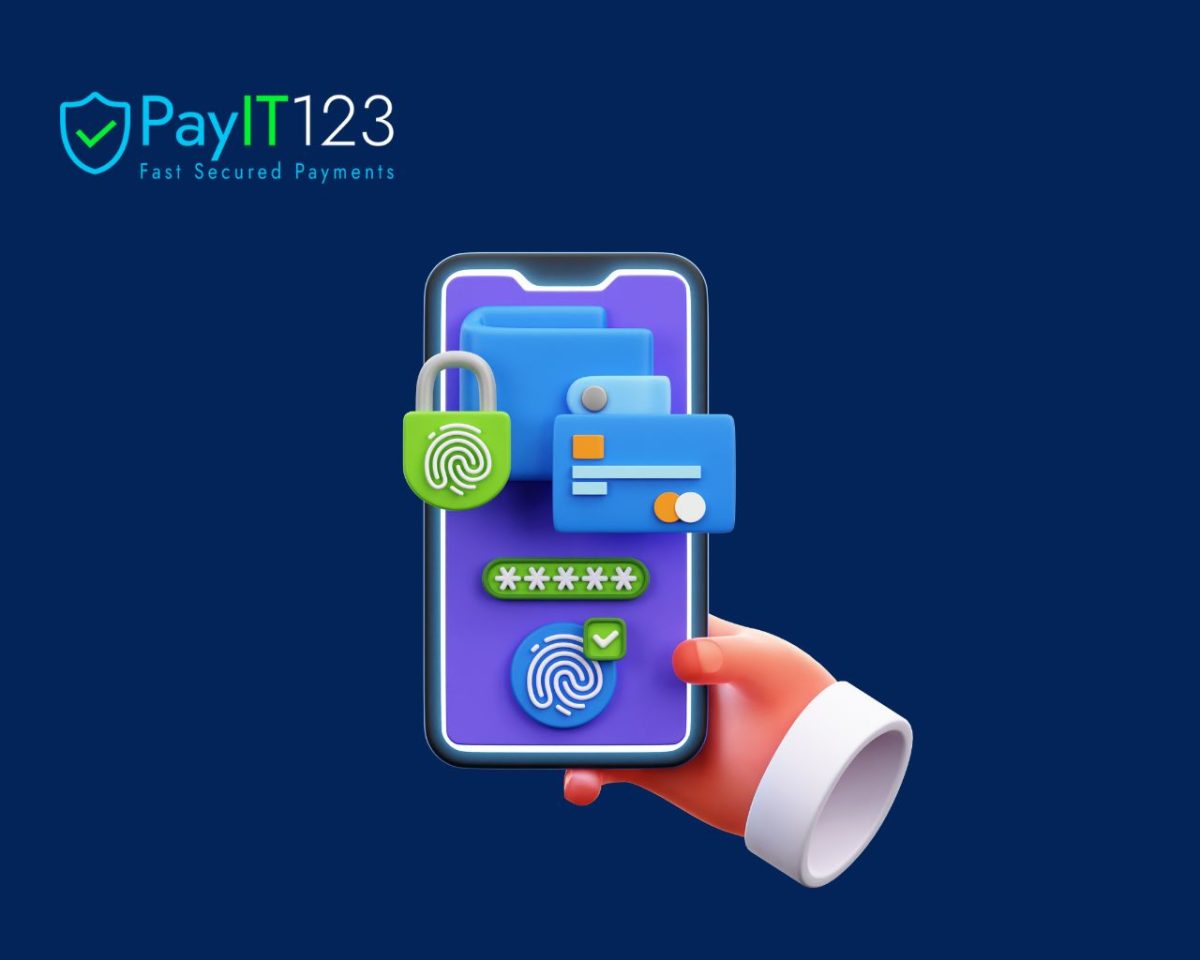Introduction
As digital transactions become integral to everyday business, ensuring payment security has never been more critical. Businesses and customers are more vulnerable to fraud, data breaches, and cyberattacks. This is where PayIT123, a leading payment solution provider, provides top-tier protection and security for online transactions. PayIT123 is committed to staying ahead of evolving payment security threats, offering advanced security features to protect sensitive data and ensure smooth, secure transactions.
Here’s how PayIT123 stays ahead of payment security threats and why businesses trust it to handle payment processing.
- Advanced Encryption Protocols
Encryption is one of the most effective ways to protect payment data during transactions. PayIT123 uses advanced encryption protocols, such as SSL (Secure Sockets Layer) and TLS (Transport Layer Security), to ensure that all customer information is securely transmitted. These encryption methods transform sensitive data, like credit card numbers, into unreadable formats during the transaction process, making it nearly impossible for hackers to intercept and misuse the data.
Why it matters:
Data Confidentiality: Encryption ensures that payment data is securely protected from cybercriminals and third-party attackers.
Compliance: Encryption is a fundamental requirement for maintaining PCI-DSS compliance, which ensures businesses meet the necessary security standards when processing payment data. - Tokenization Technology
Another way PayIT123 combats payment fraud is through tokenization. Tokenization replaces sensitive customer data, like credit card numbers, with a unique identifier or token. This token is meaningless to hackers, even if they intercept it, because it contains no accurate payment information. By tokenizing payment data, PayIT123 reduces the risk of exposure in a data breach.
Why it matters:
Reduced risk of fraud: Even if tokenized data is breached, it’s useless without access to the original payment information.
Enhanced security: Tokenization helps businesses protect sensitive data without storing it on their servers, minimizing the risk of storing vulnerable information. - Multi-Factor Authentication (MFA)
Multi-factor authentication (MFA) is an additional layer of security that requires users to verify their identity using multiple forms of authentication. This may include something the user knows (password), something the user has (security token or phone), or something the user is (biometric verification like fingerprints or facial recognition). PayIT123 integrates MFA into its payment platform to ensure only authorized users can access sensitive payment systems.
Why it matters:
Extra layer of protection: MFA makes it harder for fraudsters to gain unauthorized access, even if they have a user’s login credentials.
User verification: Businesses and customers benefit from the added peace of mind that comes with knowing their accounts are further protected by multiple layers of security. - Real-Time Fraud Detection Tools
PayIT123 employs real-time fraud detection tools that constantly monitor transactions for suspicious activities or anomalies. These tools analyze transaction patterns and behavior in real time, allowing PayIT123 to flag and block any potentially fraudulent transactions before they are completed.
Why it matters:
Proactive fraud prevention: Detecting fraudulent activity as it happens allows businesses to stop fraud before it impacts their revenue or customer trust.
Reduced chargebacks: Real-time fraud detection helps prevent chargebacks, saving businesses time and money while preserving their reputation. - Compliance with Industry Regulations
PayIT123 strictly adheres to industry standards and regulations, such as PCI-DSS (Payment Card Industry Data Security Standard) and GDPR (General Data Protection Regulation), to ensure that customer data is protected in accordance with global security standards. These certifications guarantee that PayIT123 follows best data protection and payment security practices.
Why it matters:
Legal compliance: Adhering to regulatory standards helps businesses avoid costly fines and penalties for non-compliance.
Customer confidence: Compliance with industry regulations signals to customers that a trustworthy, secure service provider is handling their data. - Continuous Security Updates and Patches
Cybersecurity is a constantly evolving field, with new threats emerging daily. PayIT123 ensures their platform stays ahead of these risks by continually updating and patching their system to address newly discovered vulnerabilities. Regular updates help secure the platform against potential attacks and ensure that businesses using PayIT123 are always protected with the latest security measures.
Why it matters:
Up-to-date protection: By regularly updating its platform, PayIT123 ensures that security holes are quickly patched, keeping payment data safe from evolving threats.
Ongoing vigilance: A proactive approach to security ensures that businesses and customers are always protected from the latest cyber threats.
Conclusion
In an era where payment fraud and cyberattacks are increasingly sophisticated, ensuring payment security is vital for protecting customer data and maintaining business integrity. PayIT123 stays ahead of payment security threats through advanced encryption, tokenization, multi-factor authentication, real-time fraud detection, and adherence to industry regulations. PayIT123 ensures businesses can focus on growth while keeping customer data safe by continuously improving its security features and offering comprehensive protection.

